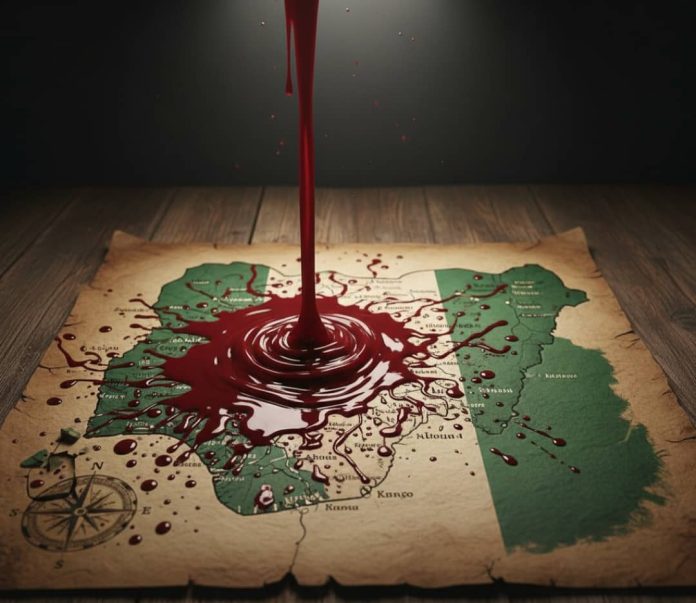Dr. Aliyu Tilde’s article, “Genocide Nomenclature in Nigeria,” attempts to rewrite Nigeria’s recent history and minimise the well-documented suffering of Christian communities. His argument is built on selective recollection, deliberate omissions, and sweeping accusations that collapse under even modest scrutiny.
Nigeria’s conflicts are complex, multi-layered and tragically widespread. But complexity is not an excuse for erasing patterns of targeted violence against any community. Tilde’s central thesis—that Christian victimhood is a Western fabrication—ignores decades of empirical evidence gathered long before any foreign leader commented on Nigerian affairs.
It is simply untrue that international concern about Christian killings began only after recent foreign political statements. Long before that, Nigerian Bishops, civil society groups, state governments and the media consistently raised alarms about escalating attacks on Christian communities.
The claim that the “Internet hides Muslim suffering but amplifies Christian suffering” is both inaccurate and insulting. Nigerian and global media have extensively reported attacks on Muslims, especially in the Northeast where Boko Haram and ISWAP devastated countless Muslim families.
Tilde lists historical crises from the 1980s to 2017, labelling all of them unilateral Christian-on-Muslim massacres. This is historically false. Nearly all these episodes involved cycles of reprisal, mutual casualties, and complex ethnic tensions. No serious researcher describes them as one-sided.
The notion that these incidents were “hidden” from the world is also misleading. Kafanchan, Zangon Kataf, Tafawa Balewa, Yelwa, Plateau crises—these were widely reported by Nigerian newspapers, discussed in national commissions of enquiry, and debated in the National Assembly.
Tilde’s argument depends on painting Christians as perennial aggressors and Muslims as perpetual victims. That framing ignores documented instances where Christian communities suffered enormous losses in exactly the same crises he referenced.
More importantly, he fails to acknowledge the scale and frequency of targeted attacks on Christian villages, priests, churches and farming communities in the last decade—violence confirmed by Nigerian security agencies themselves.
These attacks are not fabrications of foreign NGOs, nor inventions of “evangelical propaganda.” They are realities lived by Nigerian citizens whose testimonies, names and burial records exist independent of any Western institution.
The Nigerian government—under both Muslim and Christian presidents—has repeatedly acknowledged that Christian communities in certain regions have endured severe, repeated, and often coordinated assaults by armed groups.
Even Northern Muslim leaders, including governors and emirs, have condemned specific attacks on Christians, called them targeted, and urged protection for minority communities. These internal voices cannot be dismissed as “Western bias.”
Tilde’s claim that the media erases Muslim victims by using generic terms like “locals” or “villagers” ignores basic journalistic practice where identities are withheld when they cannot be independently verified or when premature tags risk inflaming tensions.
Conversely, when the religious identity of Christian victims is widely reported, it is usually because the attackers themselves explicitly targeted them for that reason—a distinction Tilde glosses over entirely.
A responsible analyst must distinguish between violence that is predominantly criminal, violence that is political, and violence that is clearly sectarian. Tilde collapses all categories into a single grievance narrative that blames Christians for global perceptions.
The suggestion that Christians “complain too much” while Muslims “leave everything to God” trivialises genuine human suffering. It is not “complaining” when communities document attacks, petition authorities, or seek justice.
It is also untrue that Western organisations prioritise Christian suffering. The highest-profile global coverage of Nigerian violence over the past 15 years has overwhelmingly focused on Muslim victims of Boko Haram, ISWAP and military excesses in the Northeast.
What has increased global concern about Christian communities in recent years is not propaganda but pattern. The repeated destruction of rural Christian settlements, targeted kidnappings of clergy, and systematic attacks on churches.
These realities stand regardless of who occupies the White House or what any foreign politician says. They are Nigerian tragedies witnessed, mourned and documented by Nigerians themselves.
Tilde’s narrative does not promote healing or understanding. Instead, it fuels resentment by reducing a national crisis to a contest of victimhood and by denying the legitimacy of the pain experienced by one half of the country.
Nigeria needs honesty, balance and compassion in discussing its conflicts—not revisionism that erases verifiable suffering. Recognising the reality of Christian casualties does not diminish Muslim suffering; it affirms our shared humanity and strengthens the call for justice for all.
Shu’aibu Usman Leman is former National Secretary of the Nigeria Union of Journalists- NUJ
